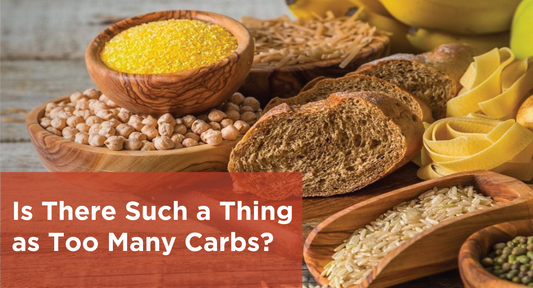A keto diet focuses on consuming high-fat and low-carb foods to induce a state known as ketosis, where the body burns fat for fuel instead of carbohydrates. Achieving ketosis involves reducing carb intake while increasing the consumption of healthy fats. During ketosis, the body produces ketones, which serve as fuel and offer health advantages. By decreasing carb intake, insulin levels decrease, prompting the body to use stored fat for energy. The science behind the keto diet revolves around the body's natural metabolic processes, aiming to shift metabolism towards fat-burning by restricting carbs and increasing fat intake. Advocates suggest potential benefits for weight loss, blood sugar regulation, and overall health. In essence, a keto diet revolves around utilizing fats for energy instead of carbohydrates, grounded in metabolic principles with potential health perks.
How Does a Keto Diet Work?
The ketogenic diet requires strict restriction of carb intake, often limiting carbs to no more than 50 grams per day. This requires eliminating carb-heavy foods like grains, starchy vegetables, fruits, sugars, and legumes. Instead, the bulk of calories come from high-fat foods like meat, fish, eggs, nuts, seeds, oils, butter, and low-carb dairy. Vegetables like leafy greens, cauliflower, broccoli, and peppers make up the rest of the meal plan.
This very low-carb, high-fat intake shifts the body's metabolism away from relying on carbs and glucose. As glucose stores become depleted, the liver starts converting fat into fatty acids and ketone bodies in a process called ketosis. The brain and other tissues begin using ketones for fuel. This is why very low carb intake is required to keep ketosis going.
The keto diet helps manage blood sugar and insulin levels, which has benefits for type 2 diabetes and prediabetes. The diet shows promise for neurological disorders like epilepsy and Alzheimer's as well. Issues like inflammation, PCOS, acne, and infertility may also be improved through careful keto dieting. However, the restrictive nature makes supplementation important to avoid certain vitamin and mineral deficiencies. Consultation with a healthcare provider is key.
Pros and Cons of the Keto Diet
Pros:
Fat-Burning Machine: This diet flips your body's fuel switch, potentially leading to faster weight loss as fat becomes your main energy source.
Energy Boost: Many people report feeling more energized and mentally sharp on keto, thanks to stable blood sugar and reduced energy crashes.
Bye-Bye Brain Fog: Some experience sharper thinking and clearer focus after adapting to the keto lifestyle.
Cons:
The Keto Flu is Real: Get ready for fatigue, dizziness, and crankiness in the early days as your body adjusts. Hang in there, it usually passes!
Nutrient Watch: Sticking to strict keto for too long can lead to vitamin and mineral deficiencies. Careful planning and supplementation are key.
The Takeaway:
Keto might be a good fit for you if weight loss, sustained energy, and mental clarity are your goals. But remember, it's not without its downsides. Talk to your doctor before diving in to make sure it aligns with your health and that you have a plan to avoid potential nutrient shortages.
How to Start a Keto Diet
Starting Your Keto Journey:
Fuel Switch: Get familiar with how the keto diet works - it's all about switching your body's energy source from carbs to fat (ketosis).
Food Choices: Pick healthy fats like avocados, olive oil, and nuts. Opt for lean protein sources like fish, chicken, and tofu.
Meal Planning is Key: Map out your meals to stay on track. Don't forget your veggies - leafy greens and cruciferous ones are your friends!
Challenges Ahead: Brace yourself for the "keto flu" and other potential bumps. Knowledge is power - knowing what to expect helps you adapt.
Find Your Tribe: Join online communities for support, tips, and shared experiences. You're not alone in this!
Realistic Goals Matter: Set achievable goals, stick to your plan, and don't get discouraged by setbacks. Remember, slow and steady wins the race!
Bottom line:
The keto diet centers on consuming high-fat and low-carb foods to prompt the body to burn fat for fuel instead of carbohydrates, a state known as ketosis. By significantly reducing carb intake while increasing healthy fat consumption, the body shifts its metabolism to rely on ketones for energy. This dietary approach is supported by scientific principles aiming to optimize fat burning and offers potential benefits such as weight loss, enhanced energy levels, and improved cognitive function. However, it's crucial to consult with a healthcare professional before embarking on this diet to ensure suitability and mitigate potential risks. Conducting thorough research and seeking support from online communities can also aid in navigating challenges and setting realistic goals for a successful keto journey.
This Blog post is an initiative by DiabeSmart, to provide accurate and Nutritionist / Doctor approved information related to Diabetes. DiabeSmart is India's first Food brand designed specifically for Diabetics, that has been clinically tested on Diabetics and Pre-Diabetics to deliver 55% - 70% lower Sugar spikes. DiabeSmart is part of Lo! Foods - India's leading brand for Everyday Functional Health foods.








